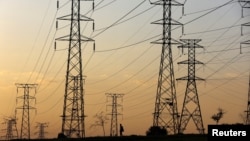Last year the Ugandan government announced it would not renew Eskom's license when it expired this month and would instead run the plants as part of plans to reduce power costs to consumers.
Part of those plans, according to the government, was to reduce private capital in the sector.
"We also strongly believe that Eskom has built adequate local capacity that will be able to continue the proper operations and maintenance of the complex," Energy Minister Ruth Ssentamu Nankabirwa said while taking over the plants from Eskom.
In a speech during Eskom's transfer, Nankabirwa said state-run Uganda Electricity Generation Company Ltd (UEGCL) will now operate the plants.
She said the government was conducting an audit to determine if it owed Eskom any compensation for un-recouped investments.
"Government of Uganda is ready to fulfil the outstanding obligations that will arise out of this audit
Under a 20-year concession signed in 2002, Eskom had been running the two plants located at the source of the River Nile in Jinja, about 90 km (56 miles) east of the capital Kampala.
Both plants have a combined installed generation capacity of 380 megawatts.




